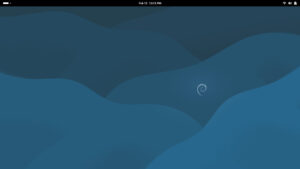FOSS Week in Review
 There was a time, back when FOSS Force was young, when we called the weekly round-up Friday FOSS Week in Review. Sometimes we’d get so far behind in our work that the Friday column wouldn’t get published until Saturday, sometimes late in the afternoon. To solve the problem that caused with the column’s title, we pulled a page from an old ABC playbook, from when they owned the Monday Night Football franchise, and called these late roundups “Friday FOSS Week in Review — Special Saturday Edition.” We didn’t change the header, but always made the “Saturday edition” mention in the text of the column, just as if it was the most natural thing in the world.
There was a time, back when FOSS Force was young, when we called the weekly round-up Friday FOSS Week in Review. Sometimes we’d get so far behind in our work that the Friday column wouldn’t get published until Saturday, sometimes late in the afternoon. To solve the problem that caused with the column’s title, we pulled a page from an old ABC playbook, from when they owned the Monday Night Football franchise, and called these late roundups “Friday FOSS Week in Review — Special Saturday Edition.” We didn’t change the header, but always made the “Saturday edition” mention in the text of the column, just as if it was the most natural thing in the world.
Today, of course, we need make no excuse for having no Week in Review yesterday. Not only did we drop “Friday” from the heading long ago, yesterday was Christmas. Here in the States we always want our Christmases to be like a Bing Crosby movie, an old fashioned New England Christmas encased in a moderate amount of snow and with an impossible measure of good cheer. They are never like that, but we believe in the myth so strongly that we refuse to venture far from our families on Christmas Day, lest we miss the Holiday Inn experience should it happen. Even in 70 degree weather, we find ourselves wishing for a white Christmas, or at least whistling for one. That’s a good thing, I think.
But now it’s Saturday, the day after Christmas. This is Boxing Day in countries that are on intimate terms with the Brits, the day when servants, tradespeople and other untouchables received gifts from any hoity-toities in their phone books. Here in the once more egalitarian States, it’s just another back-to-business day. Expect mobs to be returning gifts at the mall today.
Me? I’m going to stay at home and read the news:
Ubuntu counts a billion: There was more creative counting from Ubuntu this week, which all started over an item on Phoronix. On Sunday, Michael Larabel pointed out that Ubuntu doesn’t seem to be anywhere near reaching a goal to have 200 million users by 2015 set by space cowboy Mark Shuttleworth back in 2011. With little data available from Canonical, Larabel did some figuring on his own and concluded that the total number of users of both server and desktop Ubuntu is in the tens of millions.
“I haven’t seen any reports of Ubuntu server/desktop installations being north of 100 million let alone 200 million,” he wrote. He then points to an independent study from September that estimated about 25,000 Ubuntu phones in use, just in case anyone thought that Canonical had dominated the European mobile market while no one was looking.

What do I think? For one thing, I think if Canonical does have that many users and if they could get each to send them just 25 cents, they’d have a quarter of a billion dollars. I also think that just a little over a year ago, this same company claimed there were 25 million Ubuntu users worldwide spanning 240 countries. That sounded good until tech media pundits pointed out that the United Nations estimated there were only 196 countries in the world at that time, which led Larry Cafiero to write: “Numbers: They may not be Canonical’s strongest suit.”
New Linux desktop releases: A couple of GNU/Linux distros have beat the clock with new releases, getting them out just in time to be eligible for consideration in next years Academy Awards. Manjaro Linux, considered to be an easy-to-use Arch Linux derivative, announced the release of Manjaro 15.12 (Capella) just two days before Christmas. The new release features Xfce 4.12, KDE Plasma 5.5, the 4.1.0 LTS kernel “and all the usual Manjaro and upstream updates.” Complete specs and downloads can be found on the Manjaro website.
Also, the Ubuntu based distro Ultimate Edition came out with a special “Christmas gift to users,” with the release of Ultimate Edition 4.2.3 LTS. Actually, according to Marius Nestor who broke the story on Softpedia, this release is something of a triple threat, as three versions of the release are available, with two versions designed for ARM devices — one full blown and another “lite” version — meaning, I suppose, you can try it on your Raspberry Pi. For more information, visit the Ultimate Edition webpage.
More Linux on Pi news: If you want to run your favorite *Buntu on a Pi, you might not have to wait for the distro to issue an ARM version. On Tuesday we learned about the Ubuntu Pi Flavour Maker from Martin Wimpress, the main developer and leader of Ubuntu MATE. If it works as advertised, this one will be a game changer. It’s a shell script that allows any flavor of Ubuntu, supported or not, to be ported to the Raspberry Pi 2 single-board computer. It has official support from Ubuntu, Ubuntu MATE, Kubuntu, Lubuntu, Xubuntu and Ubuntu GNOME. For more information, visit the Ubuntu Pi Flavour Maker website.
This week also saw the release of CentOS 7 for Pi machines.
Quick Takes: GnuCash, the FOSS accounting program that won’t hold your hand but which is perfect for accounting offices, is out with a new release, version 2.6.10. Read about it or download it at the GnuCash website. … Those new to FOSS who are unclear on its history and the whys and wherefores behind the need for copyleft licenses such as the GPL, might want to look at an article published in Linux Voice which takes on the rather impossible task of telling the whole story in a single article. It presents facts that are facts and opinions that are either self evident or not — you decide. You are free to question and come to your own conclusions. That’s what free software is all about.
Next week, Larry will be back. Until then, may the FOSS be with you…
Help keep FOSS Force strong. If you like this article, become a subscriber.
Christine Hall has been a journalist since 1971. In 2001, she began writing a weekly consumer computer column and started covering Linux and FOSS in 2002 after making the switch to GNU/Linux. Follow her on Twitter: @BrideOfLinux














How many people use Ubuntu? I have know idea, But I will acknowledge that getting an accurate estimate (even if you have the logs from Canonical’s Ubuntu update servers) is no easy task. It’s not like people have to register a product key to use their Linux system.
But “how many countries” isn’t that simple a question, either. How is one to define “country” in a meaningful or useful way? Particularly in the context of networked computers?
Presumably, Canonical goes by ‘locales’, which aren’t actually the same thing as ‘nations’, but are determined by things like language and alphabet, sorting conventions, calendar, currency, and so on.
So for example, Canada would be represented by at least 2 distinct locals (Canada-French and Canada-English, plus probably more, if some of the stronger native communities have official localizations). Switzerland will have at least four (4), Belgium and the Netherlands at least two each. India might have well over a dozen (I’m guessing, here — but while India has two “official” languages, the Indian constitution lists twenty-two (22) “scheduled” languages, and their banknotes are actually printed with seventeen (17) languages).
Any ‘locale’ could well represent a ‘nation’ that’s not “officially recognized” except under the umbrella of an “official” nation (but might, like the Scots, Quebecois, Basque or Catalans, be seeking independence). Thus, for example, Spain would include Catalan, Basque, Castilian, Galician, Aragonese, etc.
So, 240 actually seems like a reasonable number.
Sigh.
know idea –> no idea
Why are these things so hard to see when one posts, but glaringly obvious two seconds later?
🙁
Clearly the key word in the phrase “1 billion direct or indirect users is the work “indirect”. A large number of these will include virtual instances on cloud servers, where Ubuntu is popular and “indirect user” count could be expected to be very large. Numbers are also notoriously difficult to extrapolate and depends on the metric used. Canonical will guesstimate from the numbers of downloads, but many downloads never lead to fixed install, and many people reinstall on the PC which had Ubuntu before. The best guide (possibly) is the Google trends methinks…this shows Ubuntu searches are about the same as Fedora, openSuSe, Linux Mint, Manjaro and Debian added together.
We have a lot of ubuntu users where I work. We also have our own ubuntu code repositories so none of these machines ever hit the Ubuntu servers for updates.